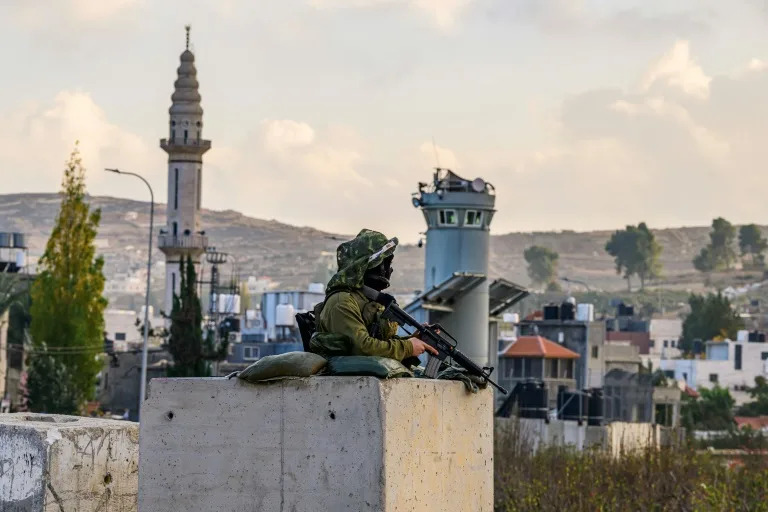The report below is one example of many of Israel's slow, wilfull and gradual ethnic cleansing of Palestinians out of their land. By making Palestinian lives impossible, the Zionists hope that they will leave the West Bank without anyone noticing that it is ethnic cleansing. In conjunction with building settlements and stealing Palestinian land, this is precisely the strategy of Israel's governments: To depopulate and de-Palestinize Palestine without being accused of ethnic cleansing. In the minds of people around the world, what is happening in Gaza is genocide and ethnic cleansing. But if it is done over a long period of time in very small doses of violence as is the case in the West Bank, Israel hopes it can achieve its ethnic cleansing of Palestinians without being accused of it.
Remember 1948? The Zionists said the Palestinians left on their own when the facts are that the Palestinians were terrorized by Zionist terrorist groups (Irgun, Haganah, Stern Gang, Lehi Group, etc.) rampaging through cities and villages and committing atrocities, including rapes, killings and destruction of entire villages.
Right now, the West Bank is subjected to an under-the-radar ethnic cleansing. Where is the international community?
----------------------------------------------------------------------------------------------
AFP
Israeli checkpoints 'paralyse' West Bank life as Gaza war rages

To arrive at work in Jerusalem on time, Murad Khalid must be at the Israeli checkpoint by 3:00 am, despite living nearby in the occupied West Bank -- a constant challenge made worse by the Gaza war.
The 27-year-old said he and other residents of Kafr Aqab neighbourhood in Israeli-annexed east Jerusalem -- located on the West Bank side of the barrier -- are subjected to a "security check that may take an hour for each car" at Qalandia crossing.
Israeli movement restrictions have long made life difficult for the three million Palestinians living in the West Bank.
But since the outbreak of the Israel-Hamas war, traffic has become "paralysed", said Palestinian Authority official Abdullah Abu Rahmah.
The number of checkpoints and barriers in the Palestinian territory has greatly increased since October 7, adding hours to already lengthy commutes and forcing residents to either wait at the checkpoints or take long detours.
Largely unaffected are the 490,000 Israelis living across the West Bank in settlements -- considered illegal under international law -- who can bypass Palestinian communities on roads built especially for them.
It used to take accountant Amer al-Salameen just half an hour to drive from his home in the city of Ramallah to his parent's village Al-Samou.
But with the new restrictions, the journey has turned into an "exhausting, tiring, and uncomfortable" four hours, said the 47-year-old.
"I used to visit my family every weekend with my wife and children. But today, I fear that something might happen on the road."
Israel, which has occupied the West Bank since 1967, has stepped up raids into Palestinian communities since Hamas's October 7 attack, which resulted in the deaths of more than 1,160 people in Israel, mostly civilians, according to an AFP tally based on official figures.
Israel vowed to eliminate Hamas and launched a relentless military offensive that has killed at least 27,947 people in Gaza, most of them women and children, according to the Hamas-run territory's health ministry.
In the West Bank, more than 380 Palestinians have been killed by Israeli troops and settlers over the same period, according to the Ramallah-based Palestinian health ministry.
Scores more have been arrested.
The Israeli army told AFP the additional barriers are "in accordance with the assessment of the situation in order to provide security to all residents of the sector".
Recently, an AFP team leaving Jerusalem at 8:00 am for the northern West Bank city of Tulkarem -- normally a trip of just two hours -- arrived there at 1:30 pm, following dirt roads through villages to get around the barriers.
The journey from Jerusalem to Jenin, also in the north, now similarly takes five hours instead of two.
Immediately after the October 7 attack, the Israeli army shut the road between the town of Huwara and Nablus, a major northern Palestinian city.
According to an AFP photographer, the army has also closed off the main entrances to most villages around Hebron in the southern West Bank, forcing residents to take dirt roads through other villages to access cities.
Student Lynn Ahmed says her usual one-hour drive from Tulkarem to Birzeit University, north of Ramallah, now takes more than three "due to closures and the destruction of some roads."
Given such difficulties, Birzeit and other Palestinian universities in the West Bank have returned to remote learning.
Israel first erected military checkpoints in the West Bank following the first Palestinian uprising or intifada in 1987, but the number increased after the start of the second intifada in 2000.
Since then, earthen barriers, gates, or cement block around 700 roads across the West Bank, according to the Palestinian Authority's Abu Rahmah, who heads a team monitoring settler activity.

No comments:
Post a Comment